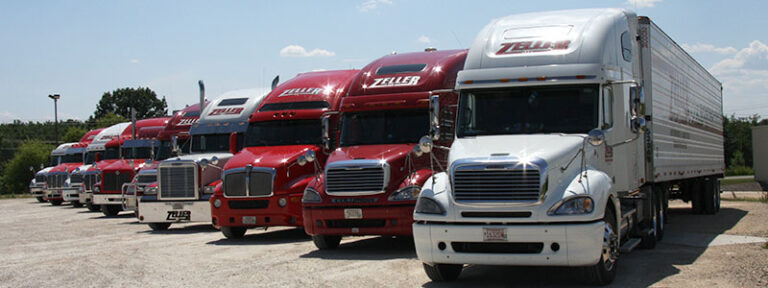LAS VEGAS — According to the results of an industry-wide survey by Fleet Advantage, replacing older trucks is viewed as a significant issue for fleets. The company offers specialty financing, fleet data analytics, fleet management services and life cycle cost management.
The survey was designed to take the pulse on fleets’ life cycle strategies and determine how many fleets are aware of the anticipated CARB prebuy mandate, as well as their anticipated plans for equipment acquisition over the next few years. The results were revealed at this year’s Advanced Clean Transportation (ACT) Expo, held May 20-23 in Las Vegas.
The results show that truck procurement and life cycle management continue to be significant topics within the transportation fleet industry, “especially given all the focus on the CARB mandate, which is expected to result in the largest truck prebuy ever leading up to 2027, beginning in 2025 into 2026, with the cost of diesel trucks increasing between $25,000 and $30,000 more per unit.”
Because aging inventory has been a significant issue, more than 3,000 transportation fleet executives were asked to participate in the survey between April 29 and May 10, 2024.
A majority of respondents (71%) say they’re operating trucks that are more than five years old. When asked how many trucks in their fleet are model year 2019 or older, more than half (62%) said as many as 50 trucks in their fleet fall into this “higher aged” category. That’s a significant jump from last year’s 37%.
Twenty-three percent said they are either unaware of the CARB mandate, or are still unsure about it. Despite most admitting they are running a longer life cycle with the need to replace trucks, 68% are aware that the CARB mandate will result in escalated truck prebuy activity leading up to 2027.
Even though the majority say they are running a five-year-or-more life cycle, 68% also admit they feel it is necessary to replace as much as 50% of their fleet over the next two to three years, which means they are now looking to shorten their life cycle.
When asked what percent of their fleet they are actually planning to replace, approximately three-fourths of respondents said they actually plan to replace as much as half of their fleet over the next two to three years.
While 36% said they have a CARB prebuy procurement plan in place, nearly half (44%) said they either do not have a plan or are unsure if their organization has a plan.
Fleet Advantage called this is an “alarming revelation that illustrates many fleets are unprepared and could face dire financial consequences in the coming years.”
What procurement trends can be expected over the next few years?
Fifty-seven percent of fleets said they plan to strategically procure trucks in a methodical manner replacing aging vehicles to ensure they are constantly refreshing equipment without overpaying for all new trucks all at once, according to the survey.
Nearly 20% of fleets said they will make no change to their replacement cycle, as they will procure trucks no matter the additional CARB prebuy cost. Furthermore, when Fleet Advantage asked if there are concerns about the affect CARB may have on truck pricing.
Twenty-three percent of fleets said they will just keep the existing trucks they have for a little longer through the next few years, according to the survey.
“It’s imperative for fleets to understand the significant implications of the anticipated CARB mandate,” said Brian Antonellis, senior vice President of fleet operations for Fleet Advantage.
“Educating fleets about the effects this will have on their procurement plans and their bottom line is important, but it is certainly not enough,” he continued. “Organizations must harness the power of data technology and analytics to establish a modernization plan that prioritizes a multi-year procurement approach. By maximizing total cost of ownership, we not only adapt to regulatory changes but also drive efficiency and sustainability forward, ensuring a smoother journey toward a greener tomorrow and more efficient operations.”
Bruce Guthrie is an award-winning journalist who has lived in three states including Arkansas, Missouri and Georgia. During his nearly 20-year career, Bruce has served as managing editor and sports editor for numerous publications. He and his wife, Dana, who is also a journalist, are based in Carrollton, Georgia.








